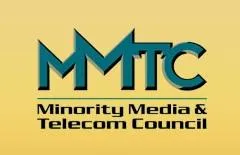Minority business can ease digital, race wealth divide

One of the less attractive components of our culture is our stubborn racial wealth divide. But by attacking the digital divide woven into race and wealth we can perhaps overcome both sets of problems.
In a significant article in The Huffington Post, David Honig, co-founder of the Minority Media and Telecommunications Council, called out for a new effort to strengthen minority business enterprise as a means to reduce the deep digital divide. Honig calls it "a chasm between those who have and have not yet adopted broadband - [which] exists at a critical point in our nation's history where we are transitioning from an industrial to a digital society."
One hundred million Americans do not fully own the means to go online - i.e. don't have a computer and an Internet connection. Of group, a disproportionate number of individuals are of color, people who are astonishingly asset-poor. "By 2009," Honig says, "the [assets] gap separating African American households from white households had grown to 20:1, and the gap separating Hispanic from white households had grown to 18:1, according to the Pew Research Center."
Groups can't build assets solely through wages; they must be part of business. But people of color continue to be under-represented in management and ownership of businesses. As Honig points out, "people of color possess a third of the nation's intellectual capital, a third of its entrepreneurial initiative, and a third of its inherent managerial capability." Yet, he says, "especially in the telecom and tech industries, most of these human resources are ignored. This waste of talent is uneconomic and inefficient for America."
Minority-owned tech businesses are more likely to harness the talents of people of color, especially young people.
"Minority business enterprises (MBEs) in the communications industries enhance society as a whole. By providing affordable service and equipment, as well as broadband adoption programs, public purpose media, and digital literacy training, MBEs promote first-class digital citizenship and generate wealth that stays in the minority community."
In short, argues David Honig, policies which aid minority tech businesses not only increase digital usage in communities of color, they are key to erasing the crippling lack of usable assets in African American and Hispanic families. As Honig says, "Let's help them help us bridge the digital divide and the racial wealth gap, so that in this lightning-speed transition to the digital age, no one is left behind."
The Digital Divide and the Racial Wealth Gap: Why Supporting Minority Business Enterprise is an Answer for Both (Huffington Post, Mar. 5, 2012)
Wealth Gaps Rise to Record Highs Between Whites, Blacks, Hispanics (Pew Research Center news release, Jul. 26, 2011)
CWA members oppose AT&T’s attempts to stop serving rural and low-income communities in California
CWA urges FCC to deny industry attempts to loosen pole attachment standards
CWA District 6 reaches agreement with AT&T Mobility



